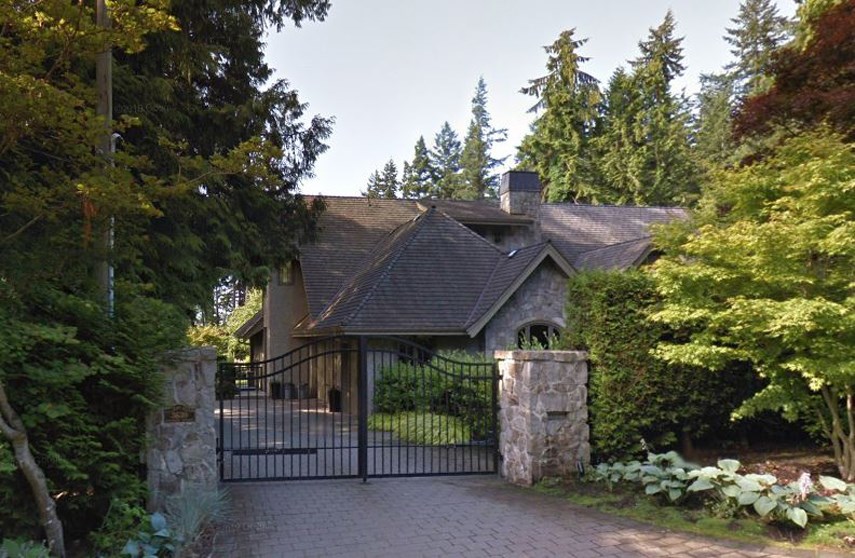A West Vancouver woman, two businesses in her name and a business law firm, have lost their bid to halt the forfeiture of a $5-million West Bay home – part of a massive international stock fraud and money laundering case.
Gregg Mulholland pleaded guilty in a New York courtroom in 2016 for his involvement in a conspiracy to manipulate share prices of publicly traded companies and laundering $250 million in proceeds through companies he controlled, the B.C. Supreme Court judgment released earlier this month noted.
As part of his plea deal on a charge of conspiracy to commit money laundering, he agreed to forfeit a host of cash assets that include a mansion at 3630 Mathers Ave. and a Whistler property.
The U.S. and Canada have a signed treaty agreeing to assist one another in such cross-border forfeiture cases, and Canada’s department of justice followed through, attempting to execute the order in July 2018. By then, the Whistler property had been sold but its proceeds were held in trust pending litigation.
Mulholland’s wife Delia, two companies of which she issole director, and a law firm -- which had represented her and continues to have an interest in the properties and proceeds of the sale -- sought to have the forfeiture stayed, alleging there had been several abuses of process.
Mulholland never had an interest in the B.C. properties and the forfeiture order in New York specifically named his co-conspirator Robert Bandfield, they argued.
They also alleged they were not adequately notified of the Canadian attorney general’s actions, arguing that using the courts as a “rubber stamp,” made the process a fundamental breach of justice.
And they took exception to the fact the B.C. Supreme Court judge’s decision to execute the forfeiture was done “in camera,” or behind closed doors.
B.C. Supreme Court Justice James Williams disagreed, however, finding the law was correctly applied.
While it was “curious” that the order named Bandfield and not Mulholland, the judge found the evidence showed “one forfeiture order was drawn in respect of both of the co-conspirators.”
As for whether Mulholland had an interest in the Mathers home, Williams cited a statement prepared by Mulholland’s lawyers at the time of his sentencing.
“After detailing his assets, he agreed to complete forfeiture and explained how these assets could be attached. One of the assets was the house in Canada in which his wife and children reside,” the statement read.
Although they still have the legal right to oppose execution of a forfeiture order, Williams noted that none of the third parties involved in the current case intervened when the forfeiture was before the courts in New York.
“The available evidence provides a basis to believe the applicants were aware of the process in the U.S., but elected not to assert their interests,” he wrote.
Williams also rejected the applicants’ request for an order requiring the federal government to turn over a "breathtakingly broad" scope of documents and communications related to the case.
“All of the evidence suggests that the U.S. authorities acted in good faith as did the Canadian government and that their actions were in compliance with the relevant laws. I find no reasonable basis, in the evidence and on the applicable law, to conclude that there was improper conduct, whether in the obtaining of the U.S. forfeiture order; the absence of notice to the applicants at the time of the filing of the order in B.C.; or any failure on the part of counsel to make full disclosure to the court of the material facts. None of these allegations of abuse of process have an air of reality to them,” Williams wrote.
Mulholland has been in custody since his arrest in 2015 and is currently serving a 12-year prison term in the United States.
The Mathers Avenue home was last assessed at $5.342 million.



